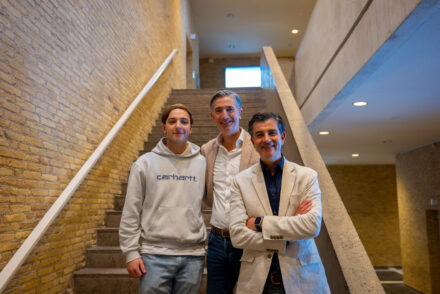Study on long term effects of racial encounters shows: racism is not a natural state of most humans
Racial prejudices decline as a result of interaction between racial groups, and the positive effect does not wear off over time. This is the outcome of a study by David Schindler, Assistant Professor of Economics at TiSEM. Together with coauthor Mark Westcott, he researched the causal effects of socio-cultural interaction. “We don’t have to live with the thought that racism is just a natural state of most humans.”

Image: Logan Weaver / Unsplash
Schindler and Westcott’s case-study looks at the encounter between African American soldiers, who were stationed in Great Britain during the Second World War, and local inhabitants. The effects of this historical meeting can still be seen in the political preferences and behavior of present-day inhabitants of the same areas. This surprising outcome will be published in a future issue of the journal Review of Economic Studies.
Contact theory
“At the very start of our research we found out that the U.S. Army was highly segregated during the Second World War. African American and white soldiers served in separate units,” Schindler tells. “We were interested to find out if this fact had measurable long-term consequences. By manually digitizing a huge amount of historical data, we created a dataset to research the effect.”
Surveys from the 1940s showed that not only the opinions of African American soldiers on the British gradually became more positive. The British also developed warmer feelings towards the troops after they regularly met in pubs, dance halls and restaurants.

David Schindler
The idea that a majority of people may become less prejudiced towards a minority if they meet and get to know each other, is not new. Psychologists in the 1950s already formulated the so-called contact theory.
Schindler and Westcott’s research adds a new insight to this theory, by showing the long term effect of encounters between groups. “When we started the research, we expected that the effects of the encounter during the Second World War had washed out after such a long time. But in fact, they haven’t. This means we don’t have to live with the thought that racism is just a natural state of most humans.”
More tolerant regions
The researchers found some regions to be more tolerant. “From the surveys we gathered that African American soldiers had a positive influence on the local population of the areas where they were stationed in the 1940s. We then compared this information with data on how present-day inhabitants in the same regions look towards minorities.”
“They are less inclined,” Schindler continues, “to become a member of the British National Party, a political party with racist policy positions, than people outside these areas. Also, the present-day locals are less likely to vote for Conservative candidates.”
According to Schindler and Westcott, an explanation for this modern day tolerance, mostly in rural areas, might be found in an intergenerational transfer of preferences: daughters and sons taking over the choices of their parents.
‘We need to keep on telling the majority that minorities have similar goals, and that they are not a threat’
“This research tells us that we need to make racial encounters happen. In Britain, but also in the Netherlands and elsewhere in the world. In many European countries, regions in which there are few minorities experience stronger anti-minority sentiment. Our results show that in such a polarized situation, we can do something by facilitating exchanges between majorities and minorities.”
“This can be stimulated by making clear to the majority that the minority has similar goals, and that the minority is not an economic or cultural threat.” Schindler emphasizes the importance of pursuing interaction. “Reducing racial prejudice is a goal worth working for. Not only for our contemporaries, but, as we showed, also for future generations.”







